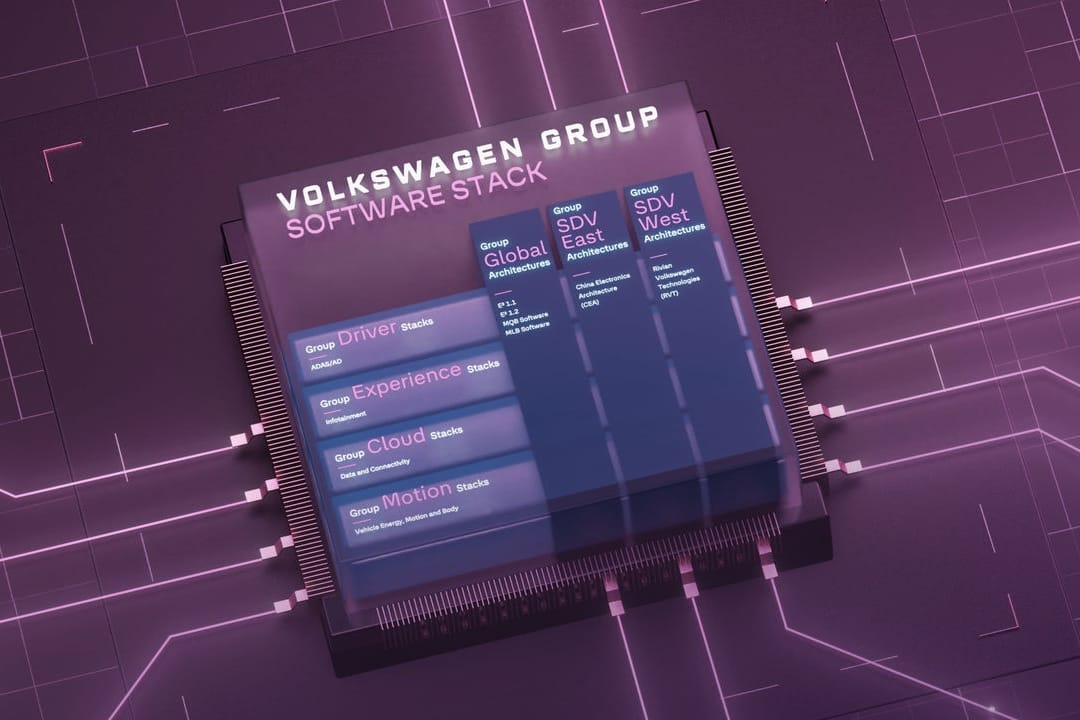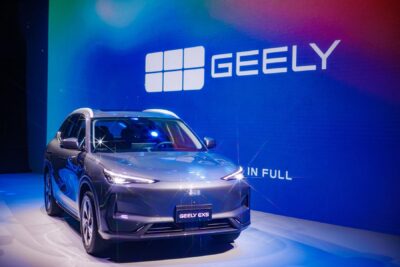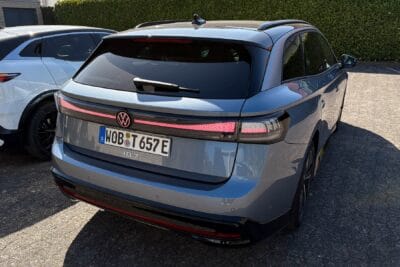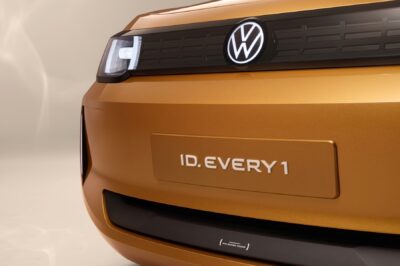VW reassigns Cariad as coordinator of Rivian and Xpeng software
The idea behind Cariad was to consolidate the VW Group’s software development into one organisation and work on a uniform software platform for all of the conglomerate’s car brands. This did not function as planned. Cariad quickly became an unwieldy instrument with around 6,000 employees from different Group brands, all with different demands and working cultures. Massive software problems significantly delayed the launch of important models such as the electric Macan, in some cases by several years.
VW sought salvation last year in a billion-dollar alliance with Californian electric car start-up Rivian, which is supposed to make VW fit for the world of software-defined vehicles (SDVs). And in China, VW has had a similar partnership with car manufacturer that was announced in July 2023 and finalised in February 2024..
In view of these alliances, it would seem that VW Group CEO Oliver Blume has been losing confidence in Cariad for some time and is now relying on external partners for software and vehicle architecture. Blume has now publicly confirmed the latter at the Financial Times Auto x Software Summit in Munich, speaking of a ‘complete restart’ of the software strategy with new partners and a restructured in-house team.
“Now that we have defined a clear software strategy, we are achieving excellent cost positioning,” said Blume, referring to economies of scale. The Volkswagen Group has built a ‘Group Software Stack that offers ‘a comprehensive framework with software-based key technologies and architectures across brands and regions,’ according to a post on the Cariad blog about the conference. There are four key areas, as shown in this article’s title image: Driver Stack, Experience Stack, Cloud Stack and Motion Stack. These four key areas are combined with three architectures: Global Architecture (the architecture developed by Cariad ), SDV East (from the partnership with Xpeng) and SDV West (from the partnership with Rivian).
Cariad will continue to exist and will be responsible for ‘legacy issues’, i.e. the maintenance and updating of VW’s existing software platforms. The demoted software wing of the German carmaking giant will also integrate the platforms developed by Rivian into VW’s numerous brands. In addition, Cariad will also be responsible for certain core issues such as autonomous driving, infotainment systems and cloud computing services.
Volkswagen wants to use ADAS from Xpeng
Volkswagen will use Xpeng’s driver assistance system XNGP (XPeng Navigation Guided Pilot) for its electric vehicles in China from 2026 onwards. According to CarNewsChina, the first model to feature this technology will be a mid-range SUV developed in collaboration with Xpeng. It is currently unclear what this move means for Cariad, as Cariad was also supposed to develop autonomous driving solutions for China. But XNGP is not a fully-fledged autonomous system according to Level 4 or even Level 5, but is classified as a Level 2 ADAS (Advanced Driver Assistance System). It offers functions such as automatic lane keeping, adaptive cruise control and semi-automatic driving on motorways and in urban environments. Although Xpeng is fundamentally aiming for Level 4 autonomy, XNGP is not yet at this level. It is therefore currently unclear whether this ADAS system from Xpeng will be used instead of Cariad technology or whether Cariad will continue to develop an autonomous system for China.
Speaking about the general restructuring at VW and Cariad, Cariad CEO Peter Bosch told the Financial Times: ‘I am somewhat relieved that we have managed to do this within two years, because it is quite a massive transformation,’ he said, describing the strategic shift from the idea of ‘do it yourself’ to purchasing software.
Rivian and Xpeng are also pursuing their own priorities in parallel. Rivian, whose second-largest shareholder is Volkswagen, is currently focusing on developing the architecture for its future electric SUV R2, scheduled to go into production next year. Meanwhile, the joint venture between Volkswagen and Rivian in California has already grown from 900 employees at its inception to 1,300, and an office is soon to be opened in Berlin.
translated from an article by Florian Trieß for electrive.net





0 Comments